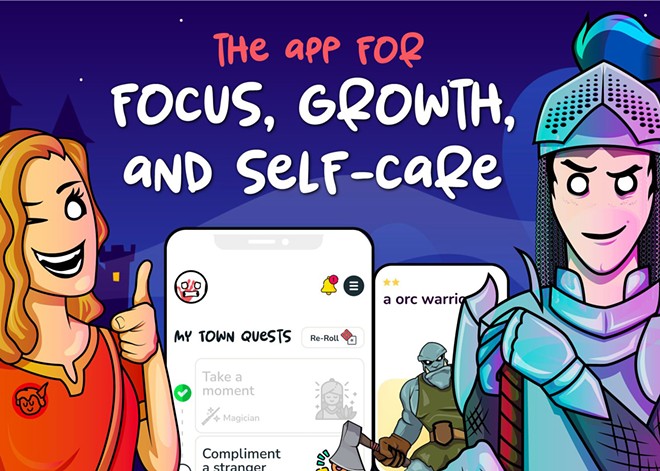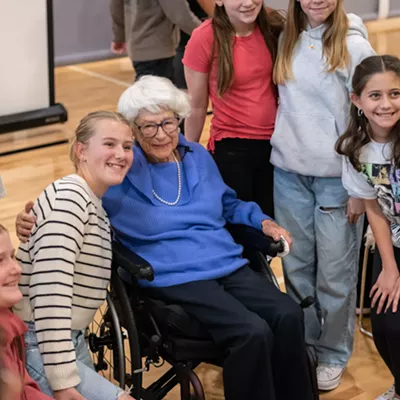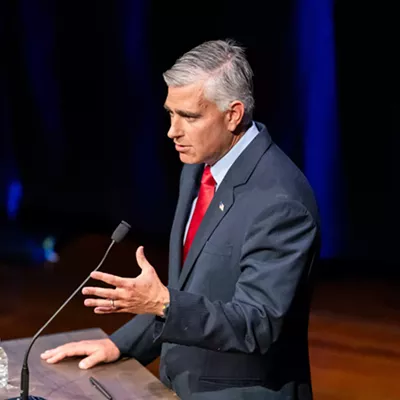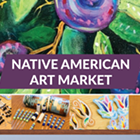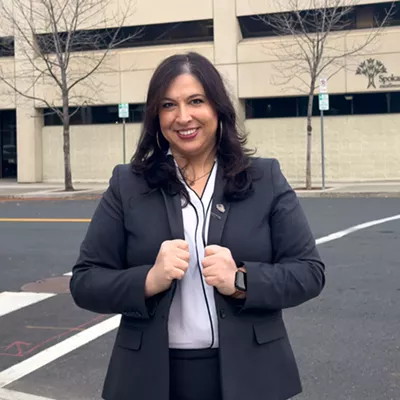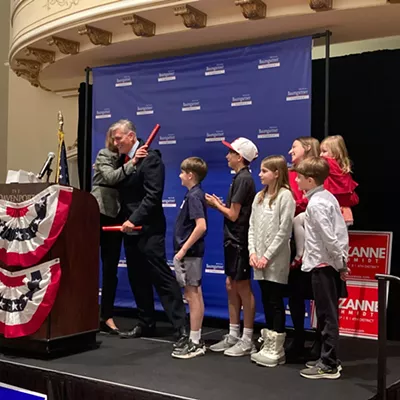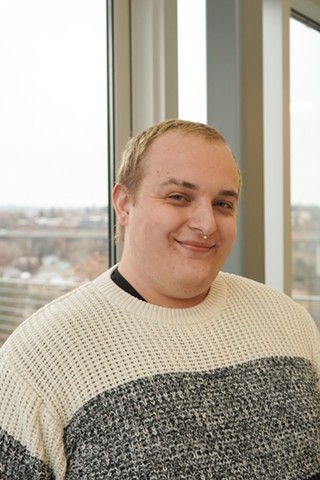When Ryan Arneson was diagnosed with ADHD four years ago, he was inundated with a world of self-help books claiming they could assist him in his day-to-day life. However, after a while, Arneson noticed he was just ruminating on his diagnosis, not taking tangible steps toward treatment.
So, he jumped into the virtual world of self-help and productivity apps to find something that might work for him. He was looking for a tool that would gamify his daily productivity and self-care needs. In other words, he wanted a self-care tool that featured reward-based incentives similar to those of a video or board game.
But again, nothing seemed to help. Some apps didn't include that gamified element he was looking for, while those that did weren't engaging enough to keep his attention.
"It came to a point where I realized that no apps worked for me," Arneson says. "I just got so frustrated that there were no apps that gamify self-care in the way I was looking for."
So, the Spokane-raised web designer, who now lives near the Tri-Cities, set out to create an app that would actually help him and hopefully others, too. Thus, ModernSam (modernsam.com) was birthed into the virtual world at the end of 2023.
Based upon the world of fantasy that Arneson has always been drawn to, his app takes users through a fantastical story about three fae sisters in the world of Centrum. Players complete quests — individually chosen productivity tasks, such as doing the laundry or brushing their teeth — as they progress through the story.
"I didn't want just a self-care app," he explains. "I wanted a balanced approach of helping people trying to reach their goals."
One of the app's most impactful features for people with attention-deficit/hyperactivity disorder are the AI-generated breakdowns for each task, Arneson says.
For example, when you select "do the dishes" it breaks the chore down into seven separate subtasks, starting with "Rinse the dishes before placing them in the sink" and "Wash dishes with soap and water." It ends with "Put dishes away" and "Wipe down the sink."
However, the app isn't able to break down some more complicated tasks. When you input "Write a news article about the app ModernSam," it prompts you to simplify the task. But you can create a task list yourself.
The app then rewards each user for completing their quests by allowing them to fight monsters (think gremlins, goblins and ghosts) and collect their corresponding cards.
As it is now, Arneson says ModernSam is still in the early stages of development. For instance, while users can collect these virtual playing cards, there's no way to use them to battle with other monsters yet.
"The hardest thing is just being patient with the process, because I know [players] want these updates right now," he says. "There are moments that I think I'm crazy for taking this on, but I have never regretted it for an instant."
Arneson anticipates that the app's next update will occur sometime in May.
Creating ModernSam hasn't been an easy job. Arneson has had to rely on the generosity of people who were invested in the idea of creating an app to help those with ADHD be productive.
During its inception, he raised nearly $30,000 from a Kickstarter fundraising campaign. Other than those funds, he's on the line for the rest of the app's costs, since it's free to download. An optional premium membership that costs players about $4 per month — or $36 for an annual plan — removes ads and allows unlimited use of the AI task breakdown feature.
"We don't have the budget from investors to advertise the app or hire additional help," he says. "I have to eat the cost of things like advertising right now."
He also found key help in a talented Florida-based app developer, Justin Martin. Arneson is responsible for all the ideas, while Martin makes them come to fruition in the app.
They were also helped by Spokane-based artist Kenneth Alquin, who's creating the app's artwork, and a handful of others who voiced characters and came up with social media strategies.
Arneson says he has talked to therapists to validate that his ideas will help folks living with ADHD, but he doesn't make any claims that the app can serve as an actual treatment.
"A lot of it is really based on the psychology of gamification, and finding what self-care techniques work for you" he says. The app also includes other themes like cognitive behavioral therapy.
Those diagnosed with ADHD often struggle to complete basic tasks because they have trouble maintaining focus.
While an app that gamifies self-care can certainly help people with ADHD, it's not considered the most effective treatment, says Michael McDonell, a professor in Washington State University's College of Medicine, who is also trained as a child psychologist.
"ADHD is really a biological brain disorder that can be treated with stimulant medication," McDonell explains. "There's over 70 years of history to support that as the most effective treatment."
For people who either don't want to take stimulants or have had negative side effects in the past, McDonell says that reward-based interventions (like gamification) can be useful as a tool to maintain focus.
While it may not be as effective as medication, McDonell does think that apps like ModernSam can make self-care more accessible.
Because such apps can reach more people, he says it's important that they actually be based on the science behind ADHD treatment. This also means that people need to understand what they're looking for in an app, he says, whether that's actual treatment or just assistance with mental wellness.
Both McDonell and Arneson would classify ModernSam in the mental wellness category.
McDonell says it's important to give apps like these about a month before deciding if they actually work for you, because changing behaviors takes time.
That won't be a problem though, Arneson says, because ModernSam rewards the player as they continue to traverse the app's story and complete quests over time. ♦

